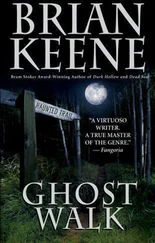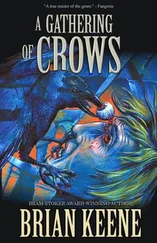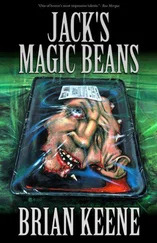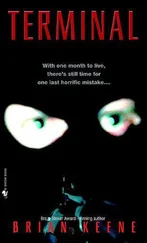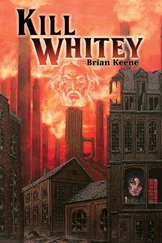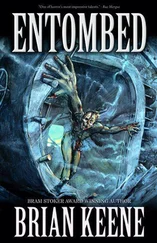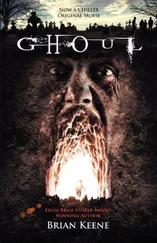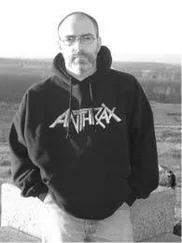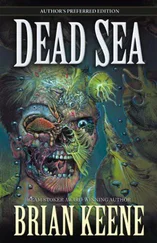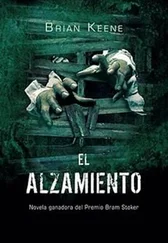The boys shrugged and shook their heads. Dookie admitted that he’d never been outside of their neighborhood.
“Well, if you boys took a drive out there, you’d learn that folks in the suburbs don’t know each other. They go to work. They come home. They go inside with their families. Maybe they know their next-door neighbor, enough to nod at him and shit, maybe exchange some pleasantries—but for the most part, they can’t tell you who lives down the street, or the name of the family three houses down from them. All they know about each other is what their neighbors are driving and which political sign they had in their yard during the election. That’s all. Down here, we know each other. Hell, most of the block is all up in each other’s business. We know when somebody is sick, when they’ve been fighting, when they’ve broken up, when they get arrested, or when they lose their job. We can’t help knowing our neighbors because they’re stuck here with us. But they don’t know each other out there in the ’burbs, and I’ll tell you something else they don’t know—their history.”
“So they’re just like us,” Chris murmured. “That’s what you’re saying?”
“No,” Perry said. “They ain’t just like us. People around here don’t know our neighborhood’s history because they don’t give a fuck about it. Out in the suburbs, they don’t know their neighborhood’s history because in most cases, there’s no history there to know. Most of those suburban neighborhoods didn’t exist until twenty years ago. It’s all new housing and new developments, and all that was there before were cornfields and forests. If there was history there, they’d be all over it—erecting commemorative signs and shit. But they can’t because there’s nothing there to remember. That’s an advantage we have here. Our neighborhood is old. We have history. All we have to do is embrace it. Learn it. But we don’t. And in the end, we’re no better than them. So, maybe I’m wrong. Maybe you’re right, Chris. Now that I’m sitting here thinking about it.”
“What do you mean?” Markus asked.
“The fact is, boys, people don’t give a shit, no matter where they live. They’ve got too many other things to worry about. Down here, we worry about drugs, paying the rent, keeping our children out of jail, all these crazy sons of bitches shooting up street corners and playgrounds. The boogeyman living in the haunted house at the end of the block just doesn’t rate when compared to all of those other things. Especially when the only time something happens is when somebody is stupid enough to go inside. It ain’t like most of us can afford to move away from it. So you learn to live with it. Ignore it. Maybe even accept it. As long as it ain’t them or their loved ones going inside that house, people could care less. And if the people down here could care less, then why should the cops and the politicians give a fuck?”
He paused, flicked his cigarette butt out into the street, and then continued. “Shit. This used to be a nice neighborhood. Folks used to hang around together outside, like we’re doing now. Used to have big block parties and work on people’s cars and carry groceries for one another. Now it’s just dark, all the time, even in the daylight—just like that place down there. But you know what? Even when this block was a nice place to live, we still had that fucking house looming over us. We didn’t talk about it, but we knew it was there, just the same. It’s kind of hard to miss. We used to whisper about it then, the way people do now. But that was all we did—whisper. Who knows what goes on in there? Your guess is as good as mine. Some folks figure it’s drug dealers. Personally, I call bullshit on that. Can’t be drug dealers, because this shit’s been happening long before drugs were ever a problem here.”
“Then what do you think it is?” Leo asked. “What’s happened to all them people over the years?”
Perry shrugged. “I don’t know, and I don’t want to know. I mind my own business. I expect the house to do the same. Maybe someday the authorities will take an interest or people will give a shit again. I keep hearing about all sorts of people wanting to buy up all the subprime real estate in Philly so they can get into their urban renewal programs, but so far no one has come knocking at my door or offered me a shitload of money. Maybe they will one of these days. Maybe they’ll buy us all out. Relocate us somewhere nice. The idiots in New Jersey are already fixing up Camden—which is like trying to beautify a two-dollar whore—but sooner or later those same idiots will want to do the same here. Then they can deal with that house. Let them.”
Frowning, Leo grew quiet. His expression was one of deep thought. Perry was about to ask him what was the matter, when Jamal interrupted. “Damn, Mr. Watkins.”
“What?”
“I ain’t never heard you talk so much,” Jamal said. “I thought you were always grumpy and shit.”
Smiling, Perry lowered his voice. “I don’t talk much because Mrs. Watkins doesn’t give me a chance to. Every time I open my mouth to speak, she interrupts me.”
They all laughed, but the sound seemed strange to Perry, as if the concrete and darkness were unused to it. Soon enough, the laughter died. They fell silent after that. Perry lit another cigarette. The wind was picking up, and he had to cup his hand over the flame to light it. The brown leaves of a stunted, dead tree jutting up from the split concrete sidewalk rustled in the breeze. It sounded like a death rattle.
They watched the house and waited.
Perry was no longer sure what they were waiting for.
***
Paul’s nose wrinkled in disgust as he reached the bottom of the shaft. The air smelled like rotten eggs. A thin stream of foul water trickled along the tunnel floor, disappearing into the darkness. The tunnel itself was actually a large sewer pipe, big enough to allow for the flow of residential and industrial waste water and sewage, as well as runoff from the city’s storm drains. He was actually surprised that there was so little water flowing through the pipe. Given the number of houses in this part of the city, there should have been more.
He shined the flashlight around, surveying his surroundings. The tunnel was big enough for him to stand upright. The top of his head brushed against the ceiling, and flecks of rust and sticky strands of spiderwebs fell into his hair. He wondered idly if there was a way to rip these sewer pipes up from under the pavement. They’d be worth a gold mine in scrap metal.
Once he got his bearings and his vision had adjusted, Paul slogged off in the direction of the house. He walked bowlegged, his feet planted on the sides of the pipe rather than the floor, so that he wouldn’t have to wade through the water. The flashlight beam showed old high-water marks on the walls. Apparently the stream had been much higher and more forceful at some point. Now the sides of the pipe were covered with garbage. His feet shuffled through leaves, wrinkled condoms, cigarette butts, plastic bags, crumpled food wrappers, empty bottles, clumps of toilet paper, tampons, crushed beer cans, and other trash that had been washed down from the streets or flushed from one of the dwellings above. He considered fishing the aluminum cans out of the debris, but then decided they wouldn’t be worth the effort. Chances were good that he’d find much more valuable scrap inside the abandoned house.
The stench grew thicker as he proceeded down the tunnel, and Paul concentrated on breathing through his mouth. The air was humid but cold. Occasionally a fresh breeze caressed his face. Paul wondered where it was coming from. He wondered, too, about the potential for disease. Although he’d salvaged scrap from a variety of locations, this was his first time wading through a sewer. He hadn’t seen any turds floating by yet, and the water wasn’t yellow, but that didn’t mean the place was sanitary. What if there were bacteria on the walls or floating in the air? Were bacteria airborne? He didn’t know and found himself wishing that he did. There was no telling what kind of infections he could pick up down here. But he plodded dutifully on, determined to gain access to the house now that he’d come this far. Cockroaches skittered around him, running up the curved walls. The sewer was quiet, and the darkness seemed oppressive. Paul clutched his flashlight tightly, thankful that he’d brought it along. He couldn’t imagine being stuck down here without some sort of light.
Читать дальше

